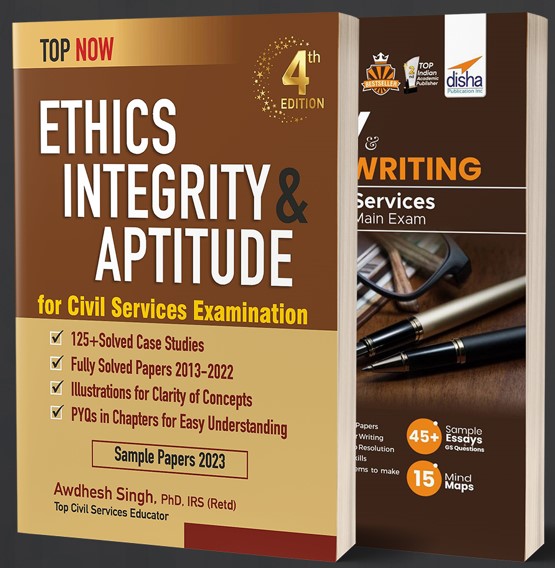All
Civil Services in India (26)
Ethics, Integrity and Aptitude
» Chapters from Book (11)
» Case Studies (8)
Solved Ethics Papers
» CSE - 2013 (18)
» CSE - 2014 (19)
» CSE - 2015 (17)
» CSE - 2016 (18)
» CSE - 2017 (19)
» CSE - 2018 (19)
» CSE - 2019 (19)
» CSE - 2020 (19)
» CSE - 2021 (19)
» CSE -2022 (17)
» CSE-2023 (17)
Essay and Answer Writing
» Quotes (34)
» Moral Stories (18)
» Anecdotes (11)
» Beautiful Poems (10)
» Chapters from Book (5)
» UPSC Essays (40)
» Model Essays (38)
» Research and Studies (4)
Economics (NCERT) Notes
» Class IX (14)
» Class X (16)
» Class XI (55)
» Class XII (53)
Economics Current (51)
International Affairs (20)
Polity and Governance (61)
Misc (77)

Answer
The intention (niyati) of the civil servant is often more important than the rules (niti). Almost every rule and regulation can be interpreted in multiple ways. Good officers interpret the rules to provide justice and deliver the result most efficiently. However, the negative-minded officers try to find loopholes in the law to delay the matter to show their power, please their bosses or make illegal money. Good officers use their discretion to help people, while bad ones use their discretion to harass and exploit people.
For example, a good tax officer detecting a case of tax evasion tries to recover full taxes using his discretion including a reasonable fine and penalty, while a bad tax officer threatens the assessee with the highest fine, penalty and arrest to make illegal money and harass taxpayers. Similarly, a good police officer focuses on major criminals and makes petty accomplishes approver, while a negative-minded police officer arrests the petty criminals while protecting the major criminals due to extraneous consideration.

Looking for a One-stop Solution to prepare for ‘Ethics, Integrity, and Aptitude’ and ‘Essay and Answer Writing’ for UPSC?
Buy Dr. Awdhesh Singh’s books from the links below-
Ethics, Integrity & Aptitude for Civil Services Examination (4th Edition)
Amazon - https://amzn.to/3HX4Hpb
Flipkart - http://bit.ly/3HNYlIQ
Mastering Essay & Answer Writing for UPSC Civil Services
Amazon - https://amzn.to/3JELE2h
Flipkart - https://bit.ly/3gVIwmv
| Related Articles |
| Recent Articles |
